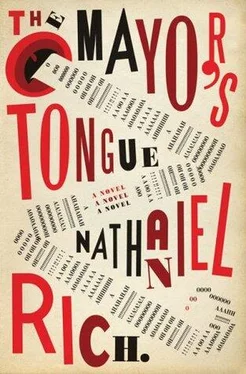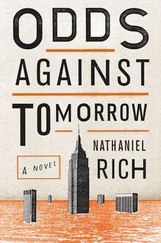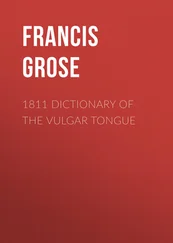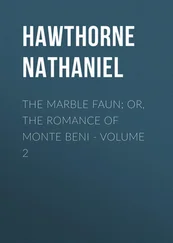Lang's jaw started to ticktock.
"You must be here for something tremendously important, since everything that Abe does is tremendously important. I assume it's something about Constantino. But quiet one second," he said, with false severity." We'll have plenty of time for research and all that bunk. I want to know, first of all, who you are."
"I work for Abe Chisholm. ."
"Yes and your name is Eugenio: like the great Genovese poet." In the queasy light his eyes appeared the same dusted blue as the sky above Trieste. "I mean to ask, what are you doing here? Besides going on some kind of fantastic mission for Abe, who I know can be a tiresome old geezer when it comes down to it. But don't dare tell him I said that." He winked and pursed his lips. "Now, tell me. Who are you? I know you're an American."
"Well, I grew up in New York, but my father is Italian, from Milan. A retired businessman. My mother was beautiful, an American singer for the musical revues. They met while she was on a European tour in college. She never learned how to speak Italian and he can barely speak English even now."
"Che romantico."
Eugene eyed the man curiously and then summed up the rest of his existence in approximately one minute. He skipped the part about his father's descent into remoteness and old world reverie following his mother's death. He realized that the only person he felt comfortable talking about this with was Sonia.
Lang asked him about the ream of papers that were threatening to spill forth from his shoulder bag.
"I have a friend named Alvaro from the Dominican Republic whose first novel I've brought with me to Italy. I'm translating it from a rare Spanish dialect. It's about a Dominican priest named Jacinto who moves to New York and falls in love with a girl named Alsa. She runs away from home and he has to go find her."
"What happens next?"
"I'm not sure, I'm only partway through the second section. The last thing I know is that Alsa has gone back to the island, where she's been kidnapped by a tribe of cannibals. But tell me: where is Alison?"
"You mean Alice? I call her Alice, or Alicia in Italian. She is a beautiful girl, isn't she?"
"Yes, she is."
"I see. You love her. That's why you came."
"No," said Eugene, taken aback. "Or — yes."
"Alice is with Eakins."
"You mean Eakins is. . alive?"
"Oh yes, quite. Robust, even."
"Is he here? In Trieste?"
"Or hereabouts."
"Hereabouts?"
"About."
Eugene closed his eyes and opened them again.
"Where's Eakins?"
"Funny you ask. I just saw him. Both of them in fact. Couldn't have been a week ago. They came to my store."
Lang shaped his pink lips into a thin, citric grin.
"Where does he live?"
"Up there." He flung an arm in the direction of one of the bookshelves.
"In the hills?" Eugene wondered whether Lang was intentionally deceiving him.
"In the Carso. There are a number of villages clustered above the cliffs on curly roads and pockmarked hillsides and grottoes hidden deep in the rock face. He lives up there. Most of my friends do — that's where I'm from. Very rarely does he come down to the city. I had told him that Alice was coming to town, so he stopped to pay her a visit. That's when it happened."
"Now when you say 'happened'. ."
"The girl was charmed," began Lang. "Do you know what it is to be charmed?"
As Lang made them coffee in a mini-kitchen in the back of the store, he explained to Eugene what transpired after he met Alice at the Aeroporto Friuli — Venezia Giulia. Lang could tell right away that she had been crying. He didn't see it in her face, which was as delicately translucent as ever, or in her dry gray eyes. But there was something moving within her, a flutter and a shiver that sent her fingers grasping in disjointed gestures and her knees buckling; she interrupted herself often with misplaced smiles and wary pauses. She seemed stricken with a secret sadness.
Driving back from the airport in his Fiat Cinquecento, Lang took the long, scenic route home, thinking that the view might divert her. They snaked along the ridge of the cliffs at twilight. The Adriatic sparkled purple behind murky, decrepit castles and scattered groves of Austrian pine trees; tunnels lit with dim yellow bulbs conveyed them through the mountainside. Chalky, moss-covered rock formations abutted the road, seeping rust-colored fluid. Soon they reached the urban limits, careening above the city's low tawny roofs and its narrow, lifeless streets. Lang asked Alice to read the signs to him, since he couldn't see them until they were right over him — his eyes barely peered over the steering wheel. Cologna é qui a destra, she said. Montefiasco. Dieci chilometri al centro storico. Alice asked Lang if he would take her to his family's village in the Carso during her visit. Maybe, said Lang. If necessary.
Lang took Eugene downstairs to show him the basement, where Alice had slept on a thin foam mattress in a room crowded with books and papers. The air was cool and smelled of orange peels and clothing detergent. A rickety bookshelf blocked the only window — a high, horizontal pane — so that strips of thin lavender light slotted into the room through the gaps above the books.
Alice had told Lang that upon waking in this place, she didn't know where she was or how she had gotten there. She had the odd sensation of having misplaced something of little significance — a hairpin, say, or an earring, though she didn't wear earrings. She took a single volume off the bookshelf and a rectangle of light fell across her chest. She removed, at random, a second book, then a third and fourth. A pattern like piano keys lit across her, from shoulder to shoulder. When she had moved the whole shelf 's contents onto the floor, sunlight filled the room and she began to feel like herself again. The window gave onto a side street, just above the level of the sidewalk; a patch of orange gardenias sprouted from a narrow fissure in the dewy pavement.
She found Lang upstairs, bowed over his desk. He was preparing his keynote speech for the annual World Esperanto Congress, which was held in Trieste that summer. Lang was the chairman of Trieste's Esperanto Association and had worked for the past several years to bring the annual meeting of the Congress to Trieste.
At last, said Lang, hearing her bare feet patter on the warped wooden floor. You're awake.
Lang took Alice to the Civico Museo di Storia ed Arte, where they spent time in front of Lang's favorite exhibits: a diorama devoted to Freud's one-year stay in Trieste, in 1875, as a university zoologist student charged with dissecting male eels to determine whether they possessed gonads; a room devoted to James Joyce, dressed in a shabby suit and lugging a fat manuscript along the Canal Grande, and his English student, the doting, limping Italo Svevo, pictured with a cigarette burned nearly down to his fingers; and the papyrus scrolls and sarcophagi of the Egyptian collection. The guards saw that Alice was a tourist, and they flirted with her. She came alive, bursting into the full, giddy laughter she had inherited from her father. She looked happy.
"She didn't mention you, if that's what you're wondering," said Lang, frowning.
"I was, actually," said Eugene.
"Then again, she didn't mention anyone else either."
On the way home, Alice talked excitedly about all the old friends she would visit in Trieste — Poldi, Marco, and Kasia — and they walked through the sun-dazzled Piazza Unità d'Italia to the old Jewish ghetto. It was a maze of cramped, veering streets lined with secondhand stores, many owned by friends of Lang's. He wanted Alice to meet one of these friends, but his store was locked up, and two lugubrious, dirt-stained children were taking turns tossing a red ragball against the window.
Читать дальше












